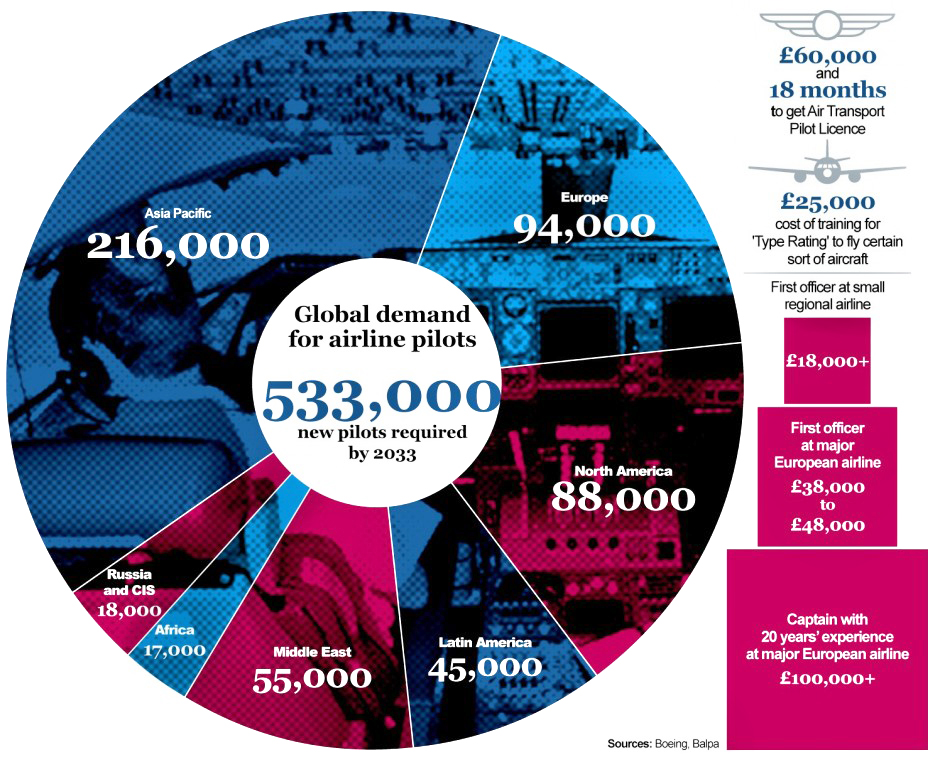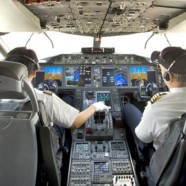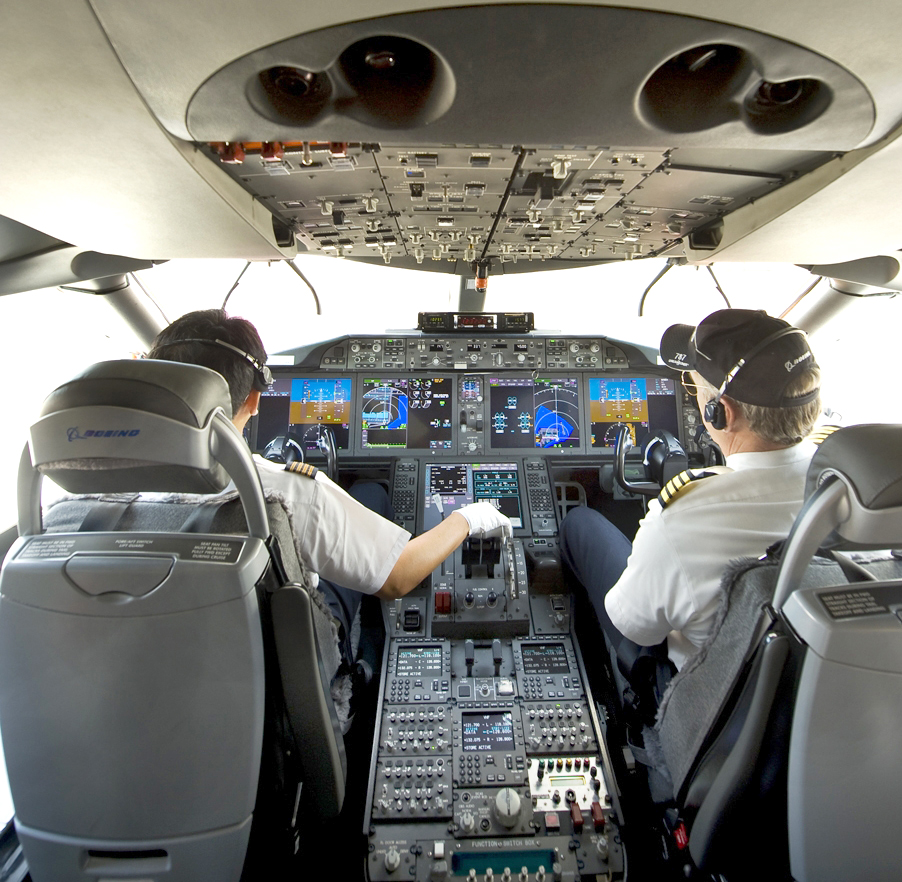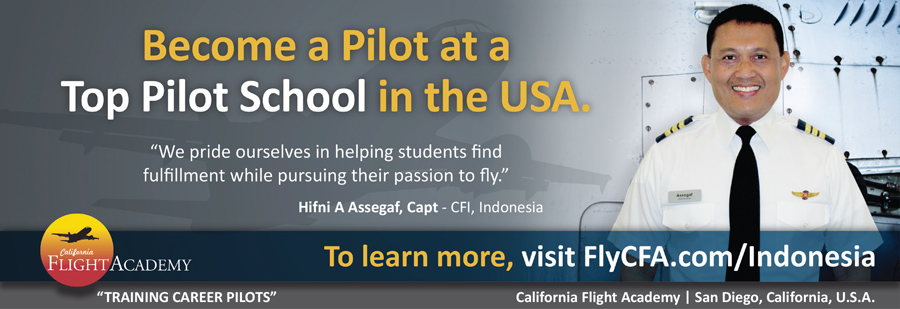Now Hiring : Pilots
Half a million new pilots needed, says Boeing.
Boeing says growth of air travel means 533,000 pilots needed over next 20 years.
The aviation industry is forecast to need more than 500,000 new pilots over the next 20 years to meet demand for international travel.
Boeing says nearly 27,000 newly qualified pilots will be required each year until 2033 – a total of 533,000 – to take the controls of the growing fleet of passenger jets.
However, the British Airline Pilots’ Association (Balpa) is warning those interested in a flying career not to be seduced by Boeing’s predictions, warning that pursuing a job in aviation could leave would-be pilots disappointed – and broke.
Boeing’s prediction for the global requirement for new pilots is 7 percent higher than the company was forecasting last year, and reflects expectations that 36,770 new jets worth a total of $5.2 trillion will be delivered over the next two decades, doubling the commercial fleet to 42,000.
Broken down by geographical demand, the fast-growing economies of South-East Asia are expected to require the most pilots – 41 percent of the global demand – as their populations become richer and people start travelling more.
According to Boeing, the Asia-Pacific region will require 216,000 pilots over the period; Europe will need 94,000; North America 88,000; Latin America 45,000; the Middle East 55,000; Africa 17,000; and Russia and the CIS 18,000.
The American aircraft manufacturer warned that industry bodies need to work together to supply enough pilots to fulfil the expected demand.

According to Boeing, the Asia-Pacific region will require 216,000 pilots over the period (Source: Boeing Balpa)
“Meeting the global demand cannot be solved by one company or in one region of the world,” said Sherry Carbary, vice-president of Boeing Flight Services.
“This is a global issue that can only be solved by all of the parties involved – airlines, aircraft and training equipment manufacturers, training delivery organisations, regulatory agencies and educational institutions around the world.”
However, Balpa – the British trade body which counts 12,000 of the UK’s 15,000 commercial pilots as members – said the UK airline industry has seen pilots taking redundancy in the past year and said that in the UK, at least, there is no impending shortage of pilots. The organisation added that it has 200 qualified pilots who cannot find work.
“Boeing’s numbers may be the case generally but that’s not what is happening in the UK,” said a Balpa spokesman. “There are masses of newly qualified pilots with no jobs to go into.”
According to Balpa, it costs £60,000 and takes 18 months to earn an Air Transport Pilot Licence, which is required to command aircraft that weigh more than 5,700kg or have more than nine passenger seats. Pilots can then need to pay up to £25,000 for a Type Rating, which qualifies them to fly a certain model of aircraft.
Wendy Pursey, Balpa’s head of membership and careers, said that as airlines have cut costs they have almost entirely eliminated “cadet” programmes, meaning prospective pilots have to pay for their own training – often running up £100,000 in debts in the process.
She added: “Once they qualify they cannot get jobs because they do not have enough experience – often only 195 hours of actual and simulator flying – for the airlines to want to take them on.
“While there might be demand for pilots in China, Asia-Pacific and the Gulf, they tend not to want [newly qualified] first officers and prefer experienced captains so they can train their own first officers locally.”
For those who do land a job with an airline, the pay may not finance a jet-set lifestyle. Balpa said that while major national airlines can pay starting salaries of £50,000 (US$84,000), rising to more than £100,000 after 20 years’ service, pay with smaller airlines can be less than half this.
Earlier this year Balpa even launched a campaign to raise awareness about the realities of working as a pilot. It cited cases of pilots who had managed to get jobs struggling to survive on £500 a month as they tried to repay the cost of their training. Research released at the time revealed that while 98 percent of pilots who were Balpa members said they were proud to be a pilot only 58 percent would recommend it as a career.
Source: Alan Tovey / The Telegraph



